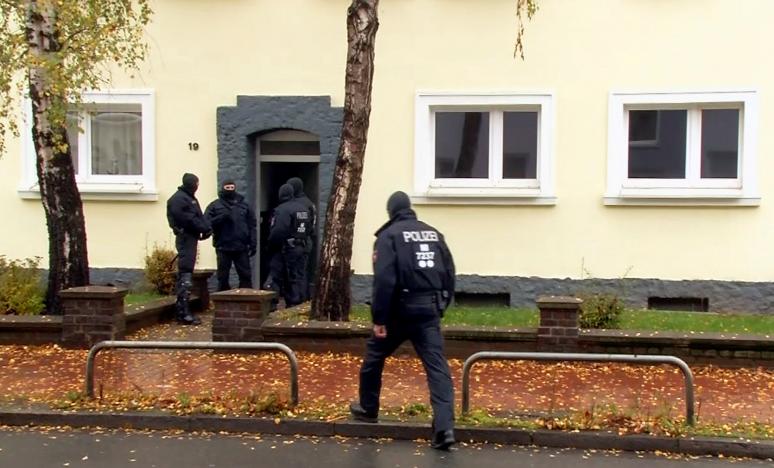
German police on Tuesday arrested five suspected Islamist militants accused of recruiting fighters for Islamic State in Syria, the federal prosecution office said in a statement.
The five men – an Iraqi, a Turk, a German, a Serbian-German dual citizen and a national of Cameroon – face charges of setting up a "jihadist network" that tried to recruit Muslims to go to Syria and fight alongside Islamic State militants.
The network succeeded in smuggling a young man and his family to an Islamic State-controlled area in Syria, prosecutors said. They gave no further details.
Some 820 people have left Germany to war zones in Syria and Iraq and officials fear they could pose a security threat upon their return.
Fears about Islamist attacks rose in July after two separate attacks carried out by two asylum seekers in the name of Islamic State. Only the attackers were killed in both incidents.
The five men were arrested in raid in the states of Lower Saxony and North-Rhine Westphalia. They had held religious lessons during which potential recruits were handed "radical Islamic" material, prosecutors said.
"The lesson served as an ideological and linguistic basis for a future work with Islamic State, particularly to take part in combat operations," the statement said.
The main suspect was identified as 32-year-old Iraqi Ahmad Abdulaziz Abdullah A, an open supporter of Islamic State who is accused of overseeing the recruitment process and approving who got to travel to Syria.
"This is an important blow to the extremist scene in Germany," Justice Minister Heiko Maas said in a separate statement.
Germany's domestic intelligence agency estimates that 8,900 ultra-conservative Muslims live in Germany. Some 500 of those are considered a security threat, which means they are willing to commit violence, security officials say.
Most the 820 people who left to war zones in the Middle East were radicalized by ultra-conservative Muslims.




